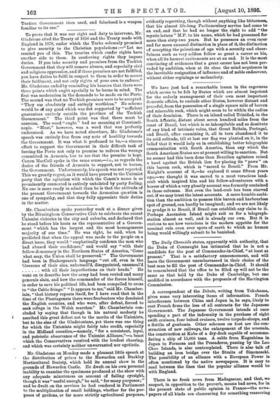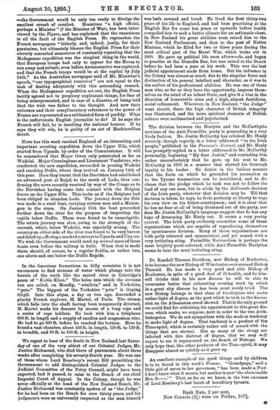There is no fresh news from Madagascar, and that, we
suspect, in opposition to the proverb, means bad news, for in the present state of public opinion in France—the news- papers of all kinds are clamouring for something reassuring
.a–the Government would be only too ready to divulge the smallest crumb of comfort. Meantime "a high official, perhaps a Minister" (P the Minister of War), has been inter- viewed by the Figaro, and has explained that the uneasiness is all the fault of the English Press. He reproaches the French newspapers "bitterly, and, indeed, justly, for their pessimism, but ultimately blames the English Press for their c leverly concerted manceuvre of constantly repeating that the Madagascar expedition was the simplest thing in the world, that European troops had only to appear for the Hovas to run away and submit, even before Antananarivo was captured, end that the French troops would be at the capital by July 14th." As the Australian newspaper said of Mr. Micawber's speech, "our typographical resources" are not equal to the task of dealing adequately with this astounding remark. When the Madagascar expedition set out, the English Press tacitly agreed not to prophesy unpleasant things, for fear of being misrepresented, and in case of a disaster, of being told -that the wish was father to the thought. And now their reticence and their complimentary references to the power of Trance are represented as a sublimated form of perfidy. What is the unfortunate English journalist to do? If he says the French will fail, he is insulting the national honour. If he says they will win, he is guilty of an act of Machiavellian deceit.



































 Previous page
Previous page